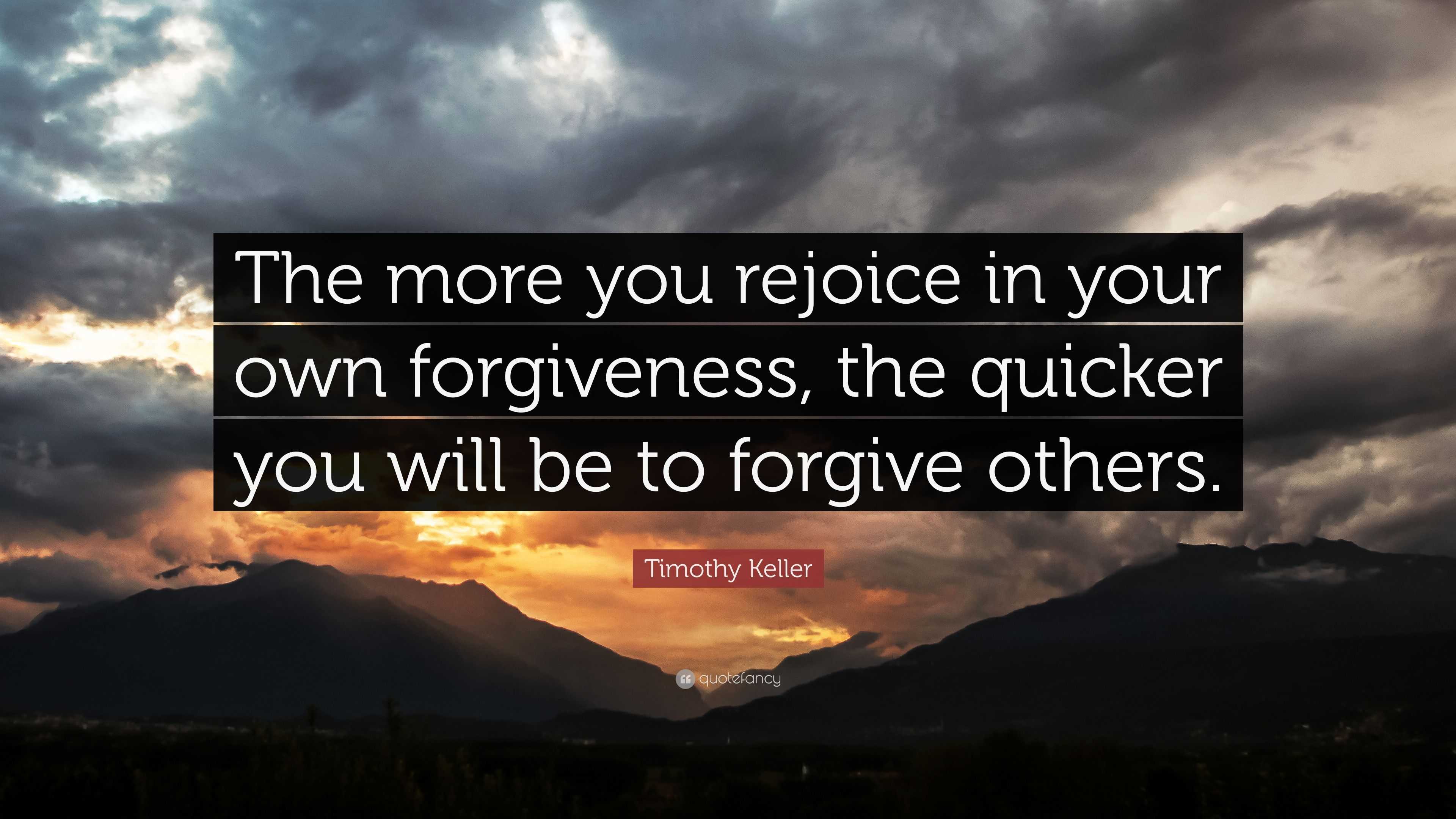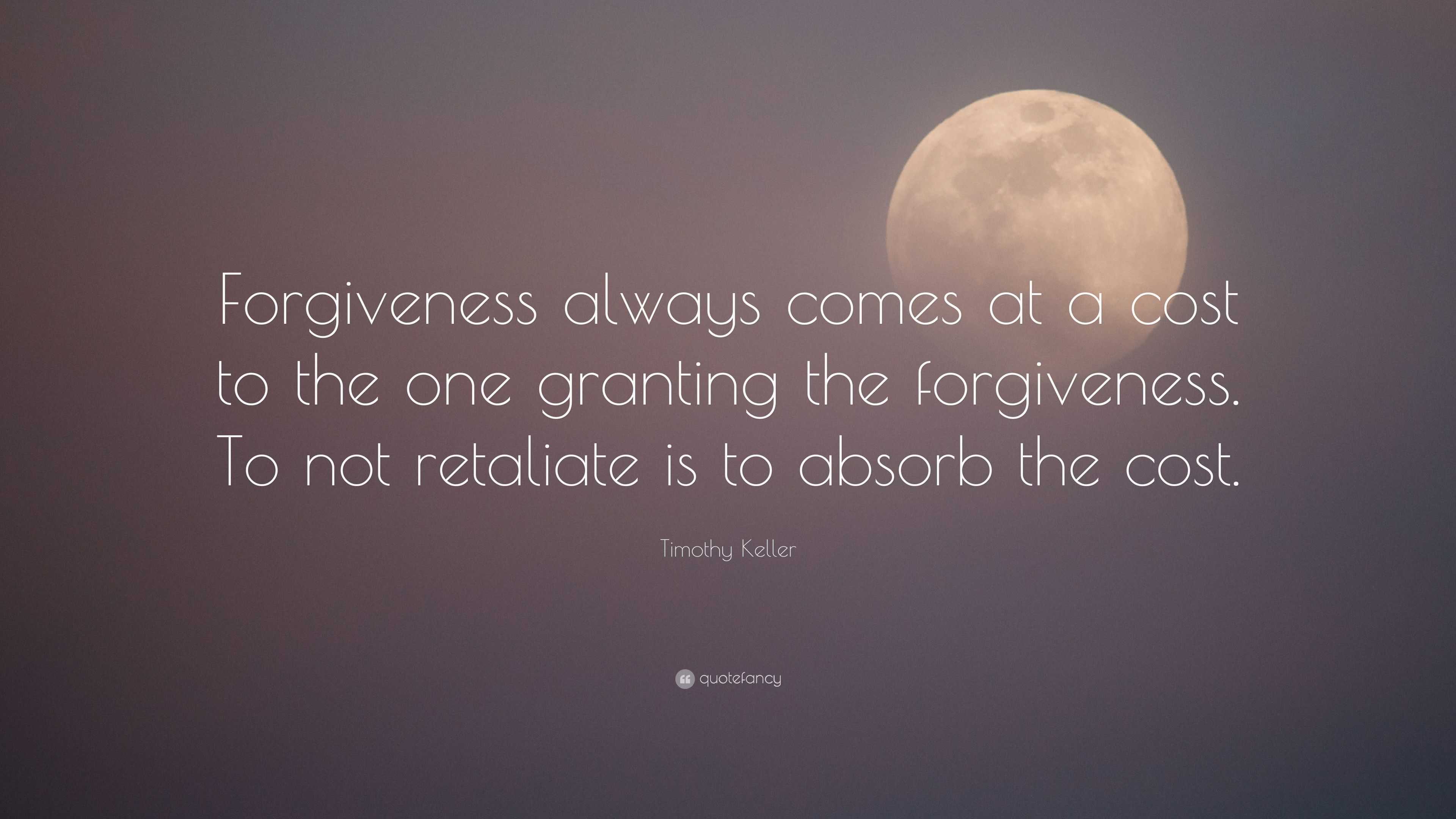
For example, Nelson Mandela did not base his forgiveness on religious commitments. JI: We know that forgiveness does not always require a Christian or even a theological framework. What worries me is, unlike the early Christians, we believers in the U.S. But even in Rome, that brutal culture, the Christian practice of forgiveness was very moving to so many. They were sure that it required fear and respect to hold things together. In both cases, elites thought forgiveness and love could not be the basis for a coherent society. The monks who were the early Christian missionaries demonstrated this counter-culture to the pagan shame and honor cultures of Northern Europe. TK: The early church offered a forgiving counter-culture in the midst of a shame and honor-vengeance culture. JI: You write that even though the theological and cultural resources for forgiveness are diminishing in society, it “will not disappear” because “there remains a powerful human intuition about its importance and power even in a secular culture that eliminates the vertical relationship with God.” Can you say more about this?

And if you are not actually bitter and vindictive-then when you speak you will not come across as bitter and vindictive. Romans 12:15) then when you meet the wrongdoer and call him to account, your emotional well-being will not be too beholden to and captive to his response. TK: If you forgive internally, fully, not basing it on the wrongdoer’s behavior (as Jesus calls for in Mark 11:25, cf. How should we address counterfeit repentance when we see it? But a victim who points out these counterfeits can easily be characterized as bitter or vindictive. On a very practical level, it seems like these counterfeits by an offender can make forgiveness by a victim even more difficult emotionally and interpersonally. JI: You refer in your book to “the counterfeits” of repentance, which include blame shifting, self-pity, and self-flagellation. It does mean, I think, some kinds of restorative behavior on the part of dominant racial groups toward oppressed racial groups. In fact, the Bible tells me that if I say I repent but I don’t radically change my behavior, then the repentance was not from the heart. In other words, repentance must not merely verbally admit to something, but it must produce genuine change. TK: If you look at Luke 3, repentance always must show its fruit. What might repentance look like in our country today? JI: Forgiveness is not the same as reconciliation because reconciliation requires repentance. It avoided endless cycles of retaliation, and, ironically, those who confessed experienced many natural consequences for their sin. My first thought years ago was “that’s not justice.” But I think time has proven Tutu right. But I must say that even though I was initially skeptical of Tutu’s Truth and Reconciliation Commission, I now believe that, while it never did all it hoped to-or all it needed to-it was a good effort that bore fruit. Tutu applied forgiveness very directly to government. If you honestly and publicly and fully confessed what you did during apartheid, the government granted you amnesty. We have to take responsibility for applying it in our situation and that takes wisdom. TK: Well the Bible is a book for all times and places and so, thankfully, it doesn’t lay out specifically how forgiveness will play out in public policy and politics-because there are so many varieties. JI: As I’ve observed anger and frustration about forgiveness, I was reminded that Desmond Tutu once called forgiveness “the stuff of practical politics.” Do you have any thoughts about the relationship between personal and political forgiveness? I am not sure how they justify that in light of biblical teaching. TK: What concerns me especially is how many professing Christians are saying we must be unforgiving to our opponents. JI: When I shared with you my latest posts about forgiveness around the pandemic, you told me some of the responses were “worrisome.” Can you say more about what concerns you?


Marriages, families, friendships-they all require forgiveness in one way or another. But social relationships cannot be sustained without forgiveness. Others on the Right are now complaining that we cannot go into the public square with compassion-rather, we should be tougher, less forgiving. Some on the Left says that forgiveness is a way for oppressors to stay in power so we shouldn’t grant it to them. But secondly, it seems that forgiveness is “fading” in our society. It is one of the main resources that Christianity provides.

First, as a pastor I’ve spent decades teaching and counseling about this subject. John Inazu: What prompted you to write this book now?


 0 kommentar(er)
0 kommentar(er)
